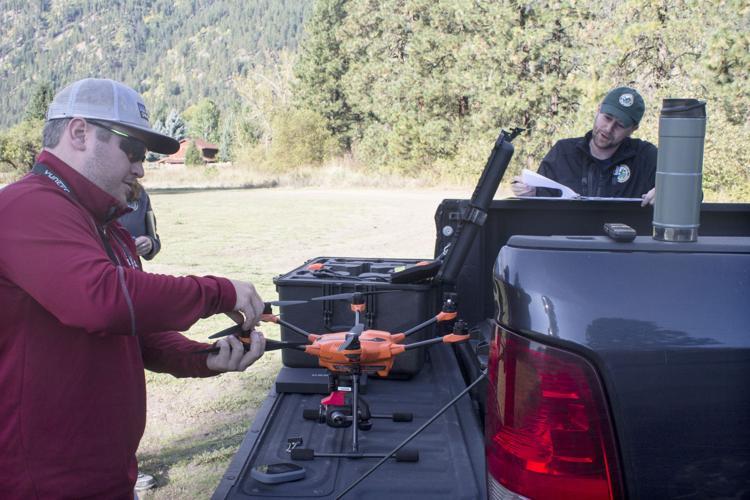Photos
Click to display full size or right-click to save to your device.
ARCHIVED NEWS RELEASE
This document is provided for archival purposes only. Archived documents
do not reflect current WDFW regulations or policy and may contain factual
inaccuracies.
News release Sept. 16, 2022
Katy Shelby, Fish Program, 509-664-4312
Staci Lehman, Communications, 509-710-4511
EPHRATA – From Sept. 23 to 26 the Washington Department of Fish and Wildlife (WDFW) will partner with Washington State University (WSU) on a research project to use drone technology to advance conservation efforts for summer Chinook salmon in the Upper Wenatchee River.
Researchers will conduct physical counts, followed by drone flights, to look at variables that influence where salmon spawn, such as the size of gravel, water temperature, and flow. The ultimate goal of this work is to create a model to predict areas of future Chinook salmon spawning. The measurements will be taken in the Tumwater Canyon outside of Leavenworth. High resolution photos and video from the drone will help identify spawning locations and habitat characteristics.
“This research is part of Daniel Auerbach’s PhD dissertation at WSU’s School of Environment and is in coordination with a State of Washington Water Research Center grant,” said WDFW biologist Katy Shelby, who leads research efforts in this area. “Auerbach, a staff member of WDFW’s fish program, will be the sole pilot for all drone flights.”
During this project, drone flights will take place daily during the September dates, with the possibility of one flight in mid-October. Flight times will be determined by conditions but, generally, between 8 a.m. and 4 p.m. WDFW will take photos and video of the river only, not surrounding areas. All surveys will take place on public land and flying over private land will be avoided when possible. Flight plans and procedures will be carried out in accordance with all federal and state regulations.
WDFW works to preserve, protect and perpetuate fish, wildlife and ecosystems while providing sustainable fish and wildlife recreational and commercial opportunities.
